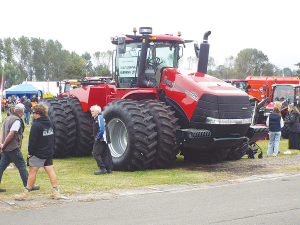According to numbers sourced from national authorities, 151,800 tractors were registered across Europe in 2023, of which 26,200 tractors (17%) were 37kW (50 hp) and under and 131,900 (83%) were 38kW and above.
Agricultural tractor registrations were 4.9% lower than in 2022, but were only slightly below the average number registered in the last five years. The number of machines registered in the first half of the year was only marginally lower than in the same period the year before. Between July and December 2023, nearly 10% fewer tractors were registered than in the equivalent period of 2022.
It appears that the first half of 2023 saw manufacturers catching up with the backlog of orders built up during 2021 and 2022 because of Covid-19 disruptions to global supply chains and the Russian invasion of Ukraine. By the middle of the year, supply chains had largely returned to normal, so the second half gave a better indicator of real demand.
Demand for tractors is closely linked to farm incomes, but since the summer of 2022, global food supply chains have adjusted to the new situation and food prices have come down steadily. By the end of 2023, world food prices, as measured by the UN’s Food & Agriculture Organisation, were down by more than a quarter, compared with the peak in March 2022.
The drop in prices for agricultural commodities has come at a time when input costs remain high, particularly for animal feed, fertiliser, fuel and energy which were exceptionally high during 2022.
Not all countries recorded declines, with the two largest markets of Germany and France both recording small increases, to deliver a combined share of European registrations of 41%.
In contrast, registrations were lower in Italy, Poland, Spain and Austria.
In Germany, tractor registrations in 2023 were 28,881 units, while France rose to 36,396 units, the highest level since 2014. Italy’s market dropped by around 13%, mainly in the 57-130kW sector.
In the United Kingdom, the total number of agricultural tractors registered in 2023 was 2% higher than the year before, while in Spain a severe drought saw a fall in registrations of 18%. Elsewhere, Poland hit 10,300 units (-12%), Belgium recorded 2788 units (-8%) and the Netherlands 2662 units, up 6% on 2022. Bucking the trend, Turkey registered 77,901 tractors, an increase of 16% over 2022, and 54% higher than the average for the 2018-2022 period.



















